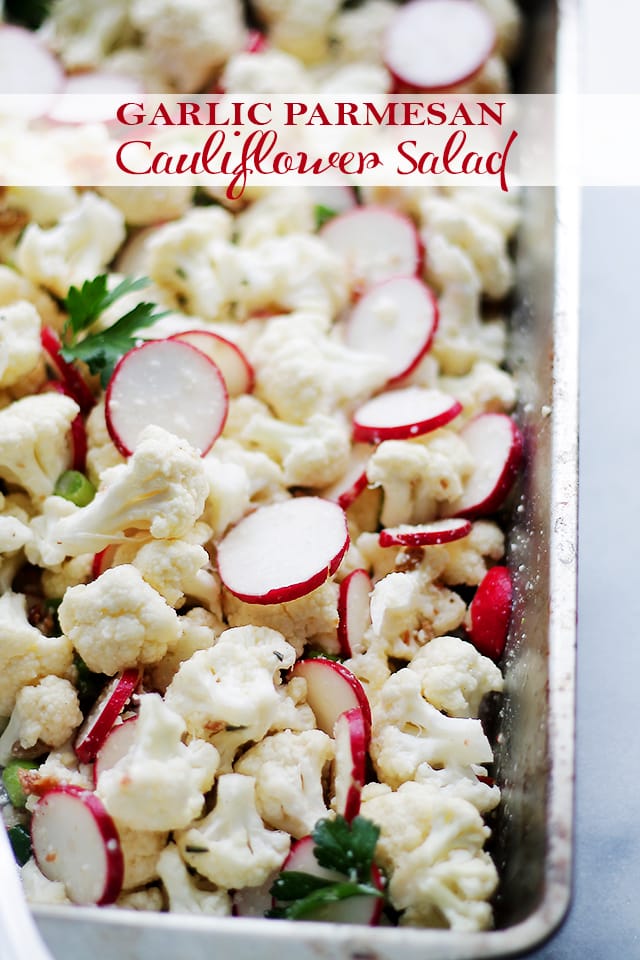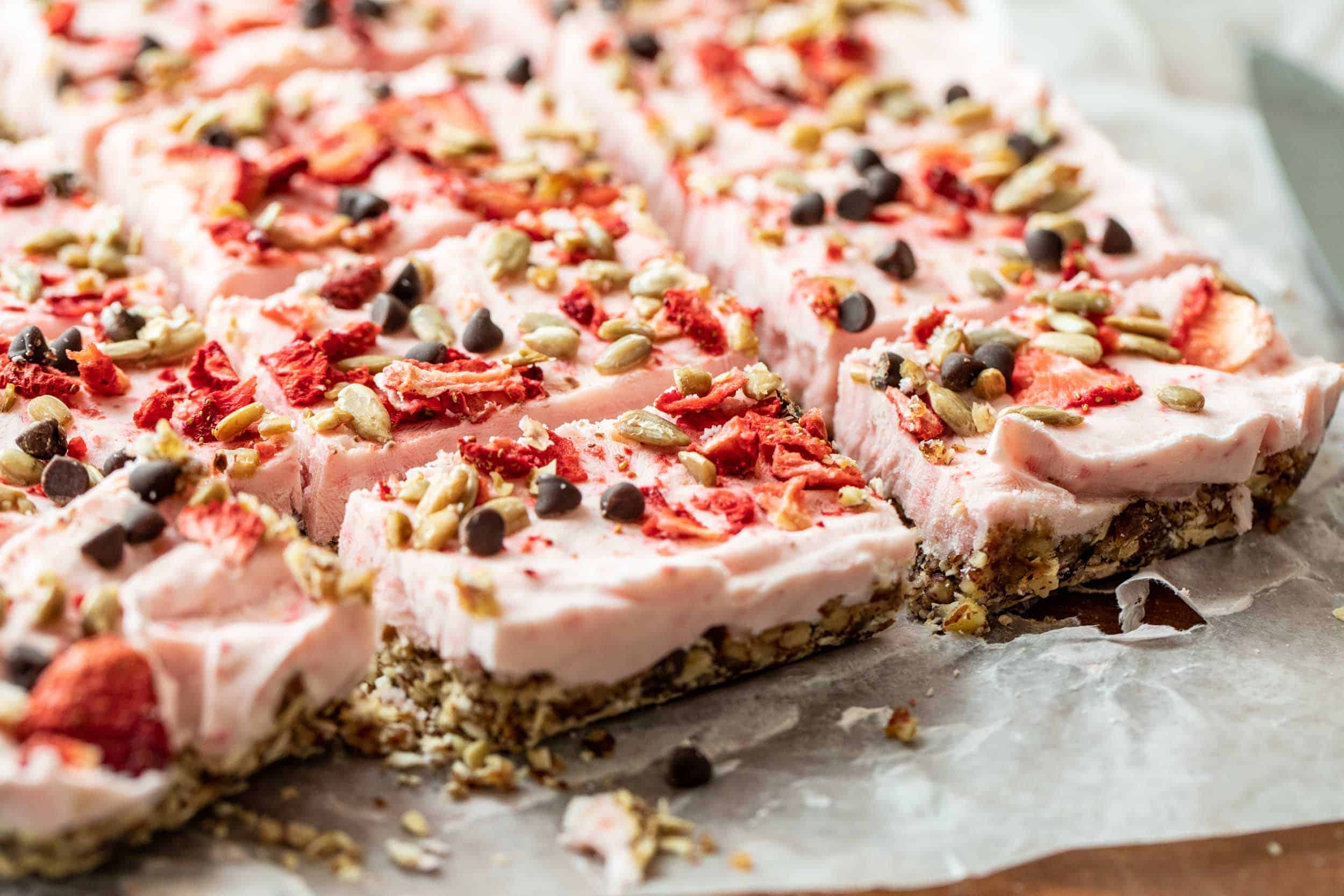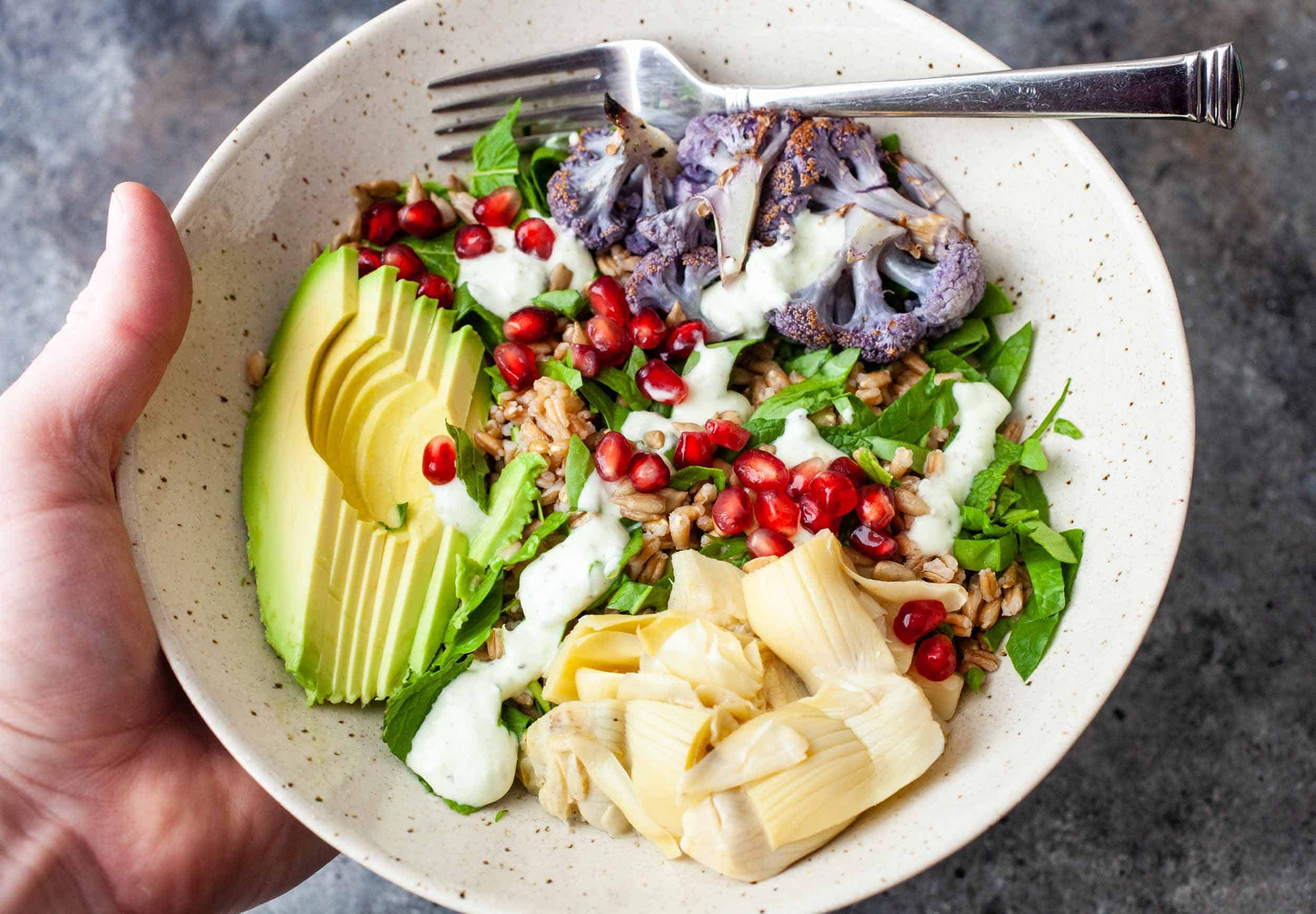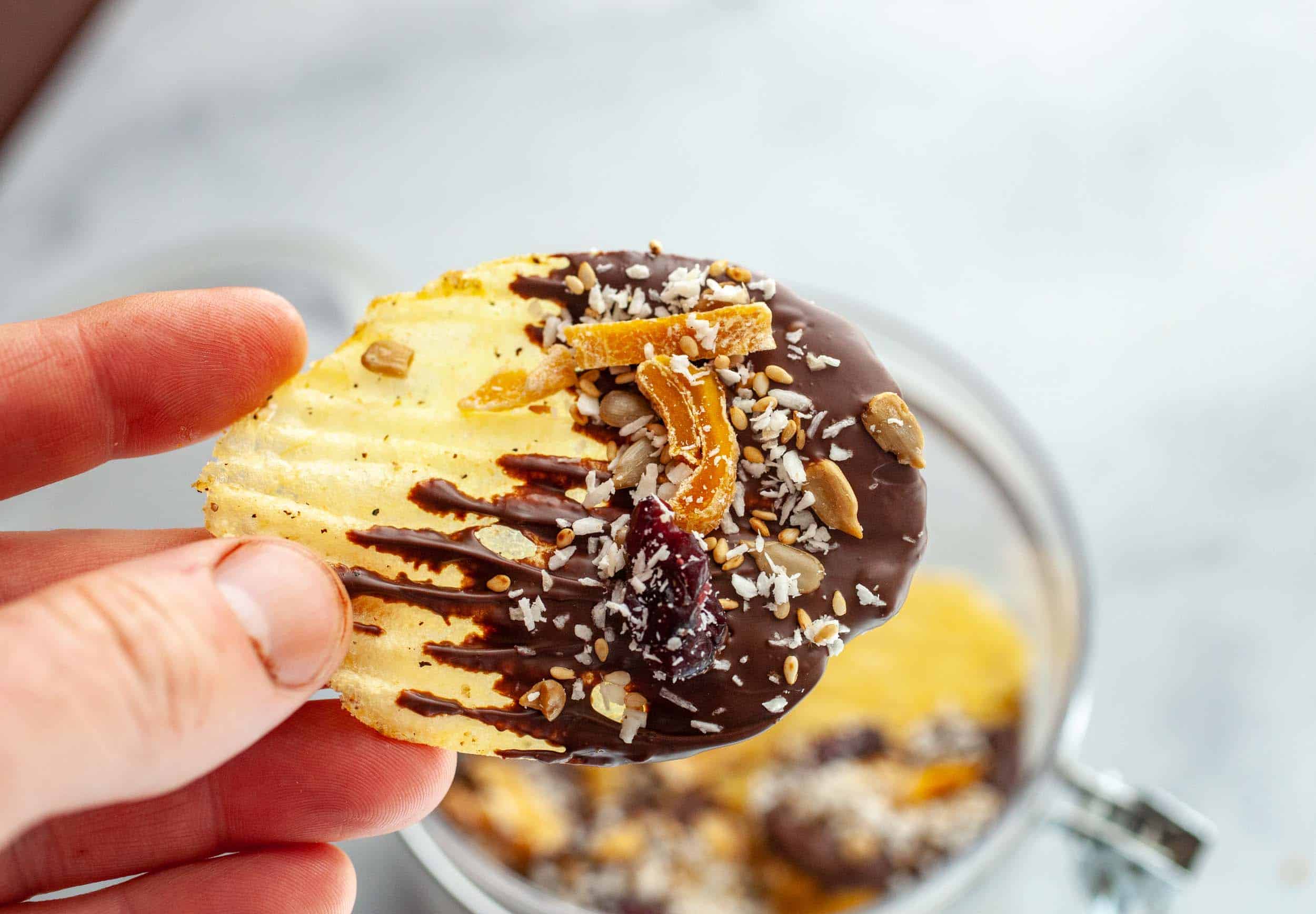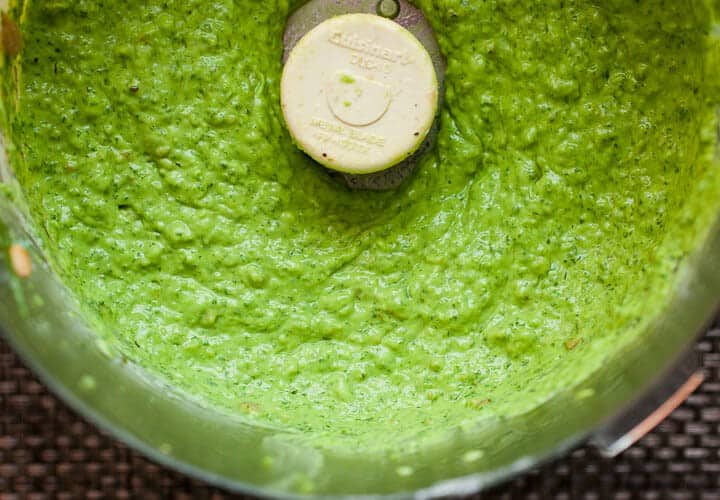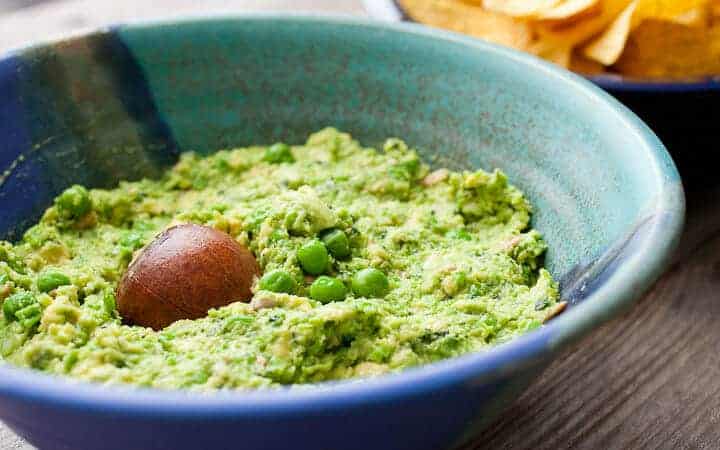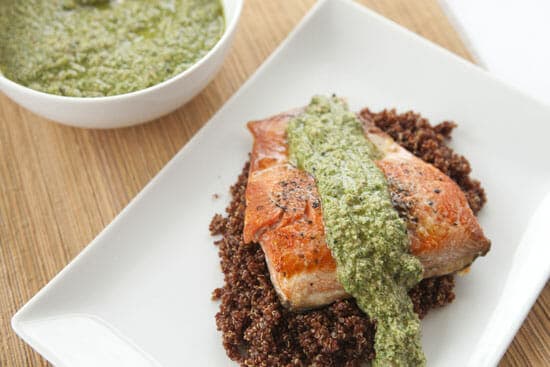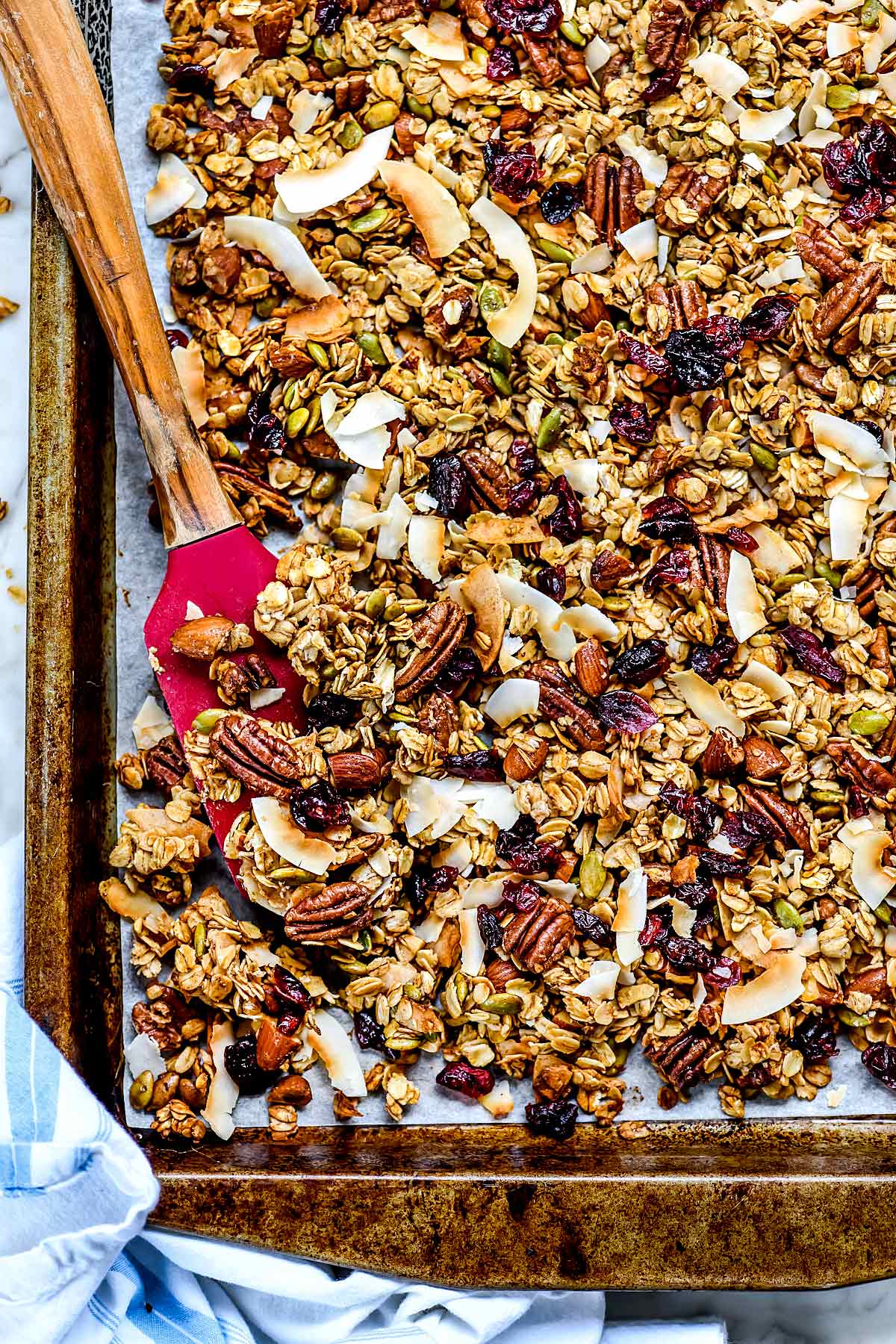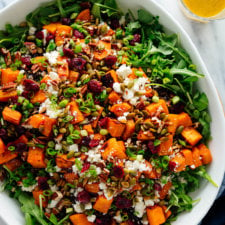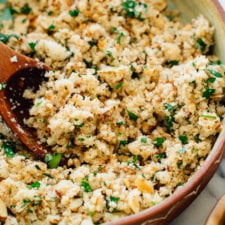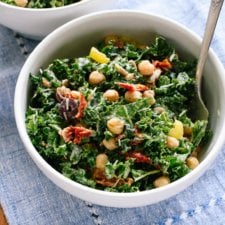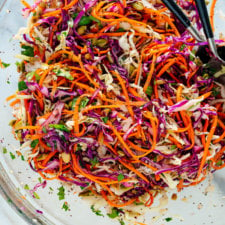Sunflower Seeds: Important Facts, Health Benefits, and Recipes
Explore the health benefits, history, and culinary uses of sunflower seeds in our ultimate guide, and learn how to incorporate this nutrient-rich ingredient into your diet.
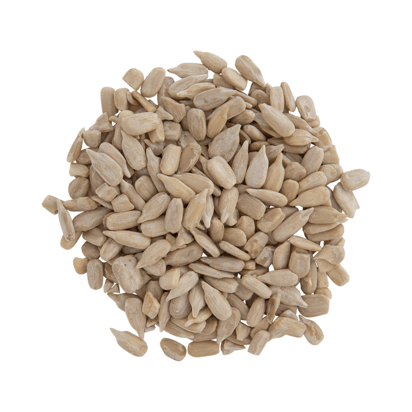
Nutritional Facts
1 cup, with hulls, edible yield
Amount per serving
Calories
268.6
Carbohydrates
9.2 g
Fat
23.7 g
Protein
9.6 g
Saturated Fat
2 g
Sodium
4.1 mg
Fiber
4 g
Sugar
1.2 g
Best Sunflower Seeds Recipes
-
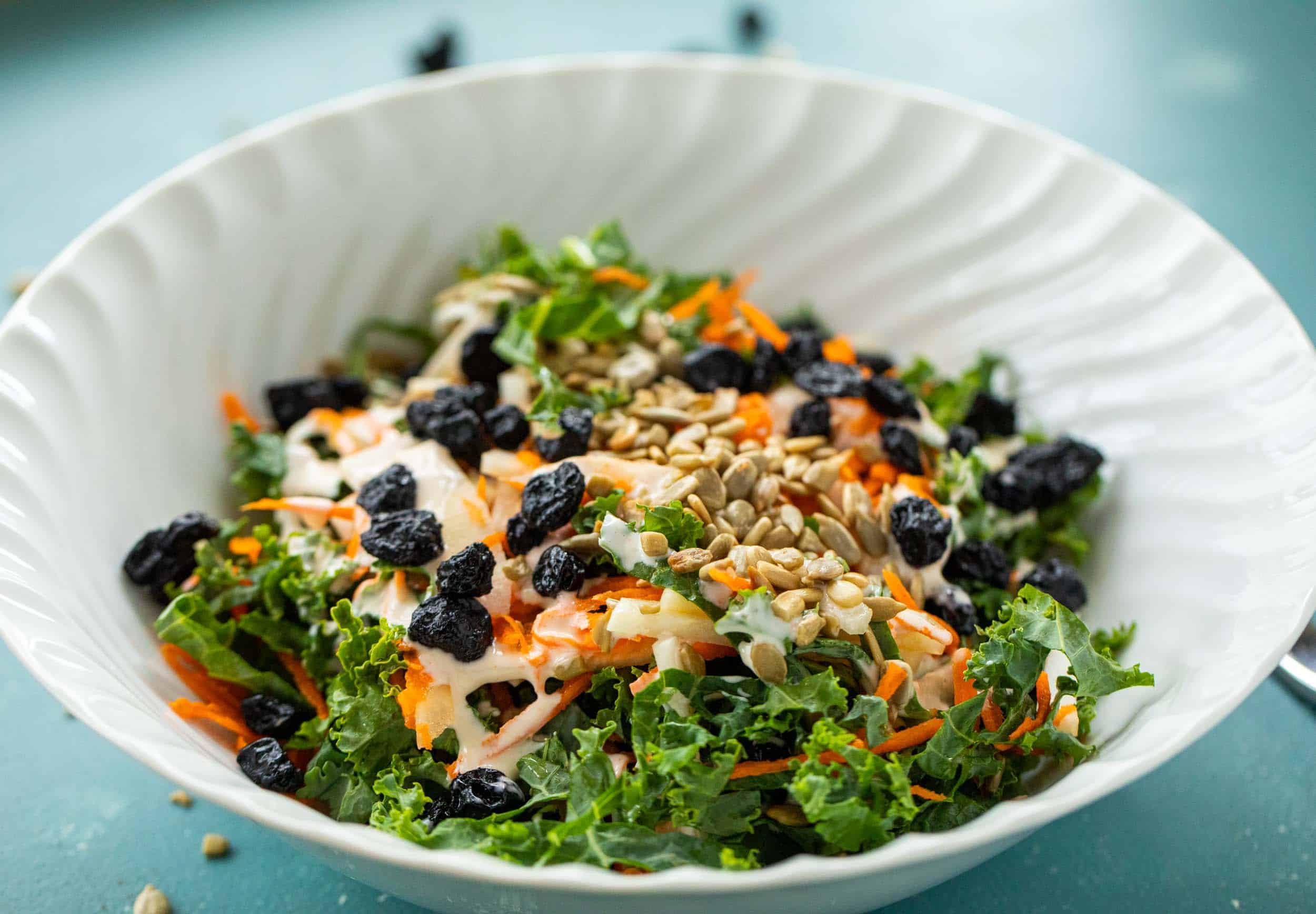
-
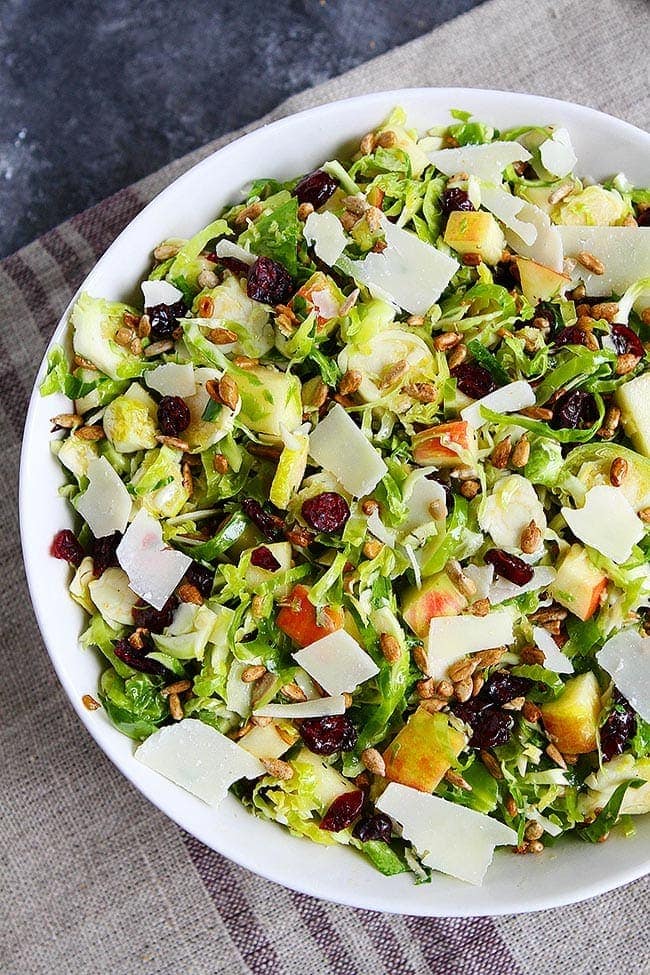
-
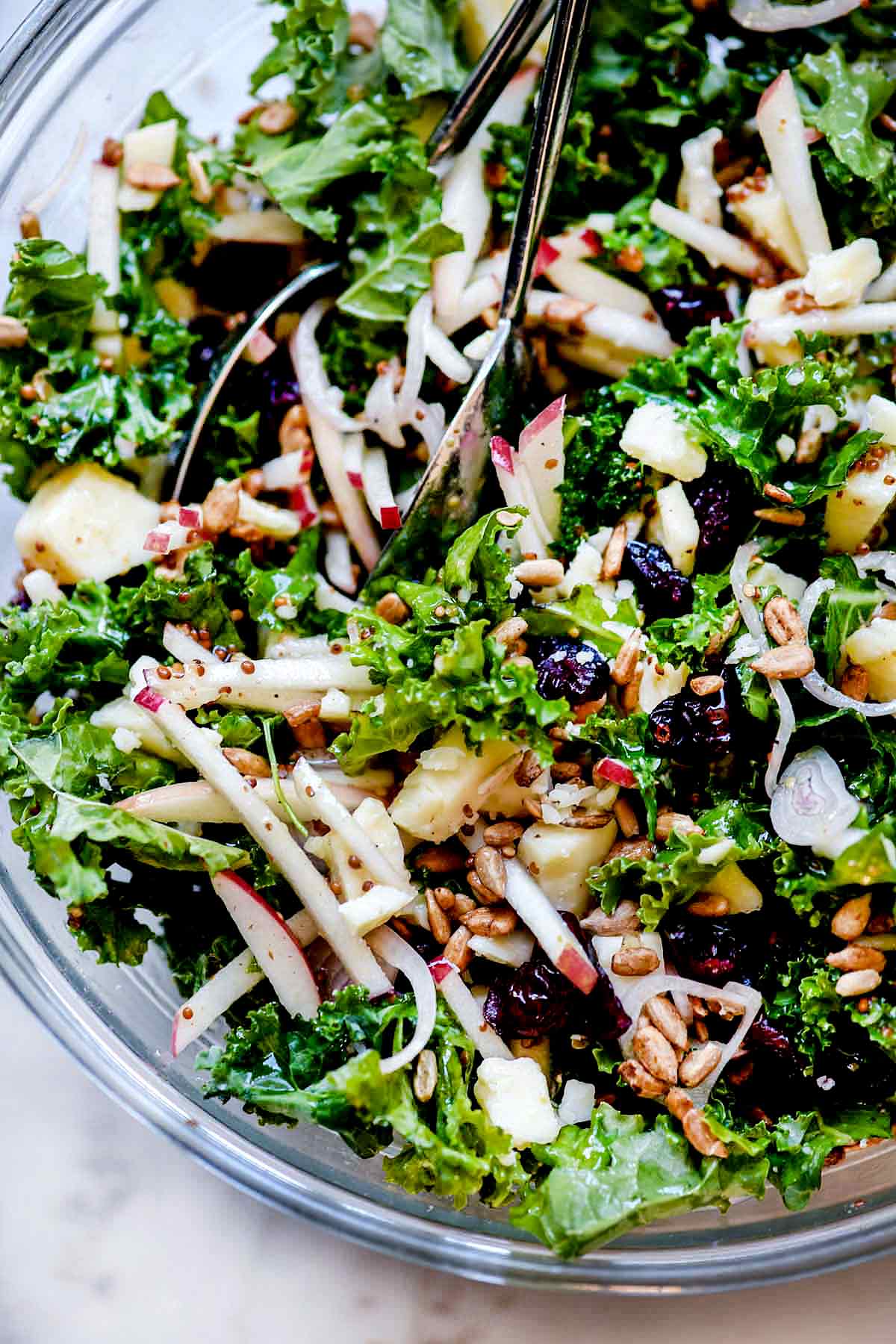
-
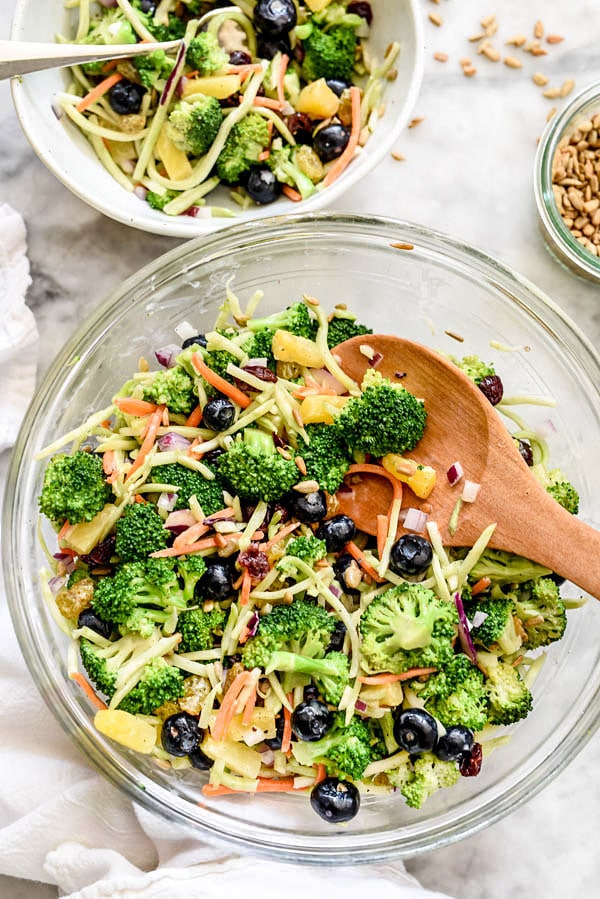
-
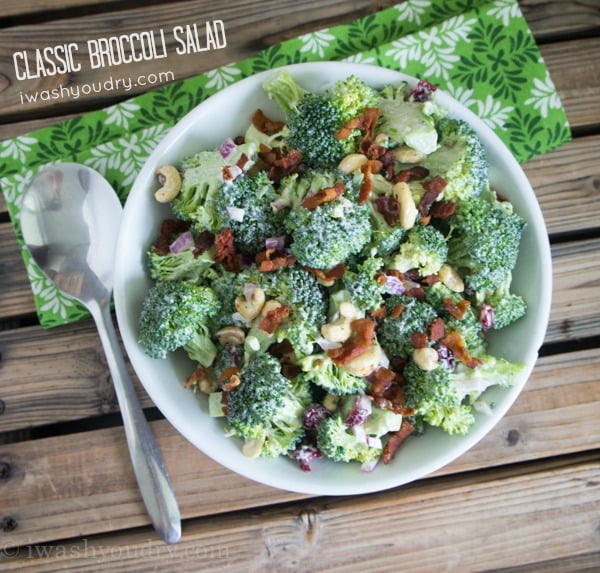
-
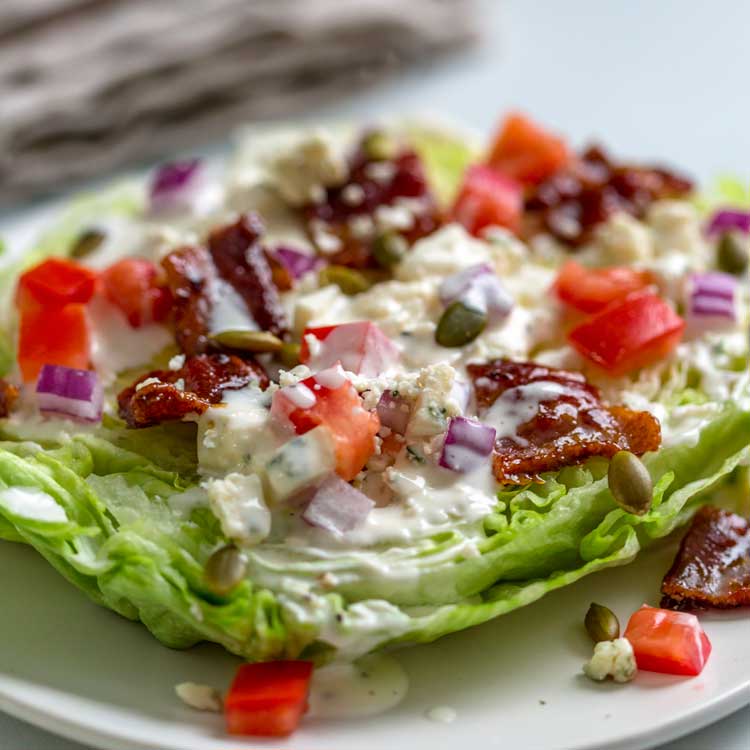
-

-
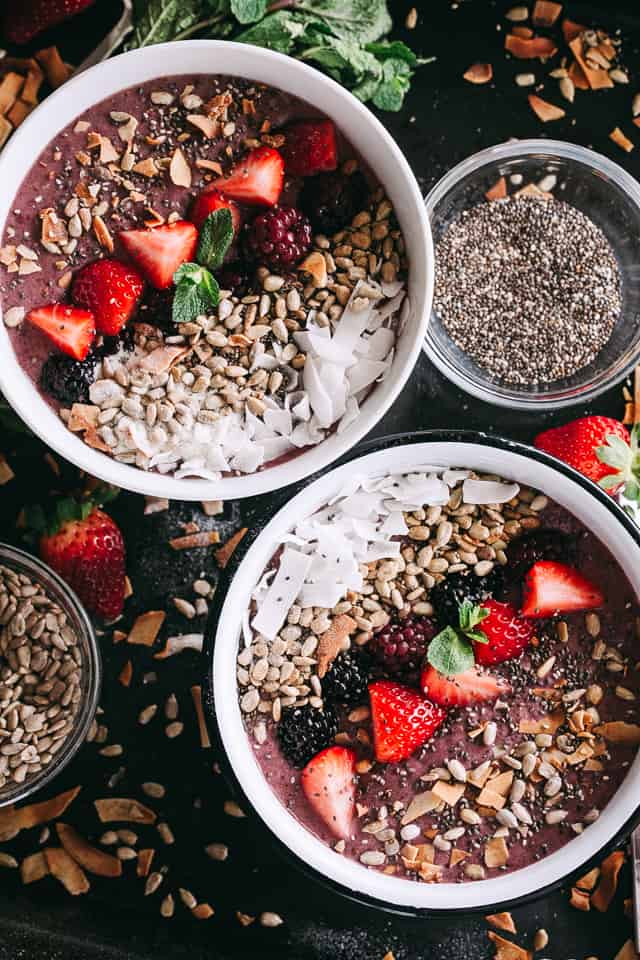
-
![Garlic Parmesan Cauliflower Salad Image]()
-
![No Bake Strawberry Greek Yogurt Bars Image]()
-
![Roasted Cauliflower Mediterranean Farro Salad Image]()
-
![Loaded Chocolate Covered Potato Chips Image]()
-
![All-Purpose Green Sauce Image]()
-
![Pea Guacamole Image]()
-
![Watercress Pesto Image]()
-
![Basic Granola Image]()
-
![Peanut Butter Granola Bars Image]()
-
![Basic Homemade Granola Image]()
-
![Aussie Bites Copycat Recipe Image]()
-
![Chocolate Dipped S'mores Granola Bars Image]()
-
![Pumpkin Spice Granola Bars Image]()
-
![Breakfast Fruit Pizza Image]()
-
![Winter Roasted Butternut Squash Kale Salad Image]()
-
![Garbanzo Bean Bacon Chopped Salad Image]()
-
![Layered Holiday Kale Berry Salad Image]()
-
![Marinated Kale Salad Image]()
-
![Broccoli Salad Recipe Image]()
-
![Meg’s Winter Green Salad Recipe Image]()
-
![How to Make Easy Healthy Granola Image]()
-
![Hearty Sweet Potato, Arugula & Wild Rice Salad with Ginger Dressing Image]()
-
![Masala Lentil Salad with Cumin Roasted Carrots Image]()
-
![Mediterranean Cauliflower Rice Image]()
-
![Sunshine Slaw with Quinoa Image]()
-
![Greek Kale Salad with Creamy Tahini Dressing Image]()
-
![Massaged Broccoli Rabe Salad with Sunflower Seeds & Cranberries Image]()
-
![Anything-Goes Kale Salad with Green Tahini Dressing Image]()
-
![Clumpy Granola with Stewed Rhubarb from Chickpea Flour Does It All Image]()
-
![Simple Healthy Slaw Image]()
-
![Crisp Apple & Kohlrabi Salad Image]()
-
![Erin's Spring Panzanella with Fresh Peas and Fennel Image]()
-
![Balsamic Butternut, Kale and Cranberry Panzanella Image]()
-
![Mason Jar Chickpea, Farro and Greens Salad (& lunch packing tips!) Image]()
-
![Spring Carrot, Radish and Quinoa Salad with Herbed Avocado Image]()
-
![Greek Salad with Broccoli and Sun-Dried Tomatoes Image]()
-
![Kale, Clementine and Feta Salad with Honey-Lime Dressing Image]()
-
![The Little Green Salad Image]()
-
![Honey Almond Granola Image]()
-
![Summer Squash Salad with Lemon Citronette Image]()


